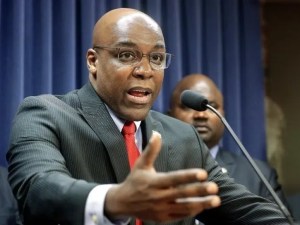Inherent in a democracy is the responsibility of its citizens to carefully monitor the actions of the government officials that are acting on their behalf. For citizens to fulfill this role governmental agencies must make the data they collect publicly accessible. This is usually done through the most routine and least empowering means, an annual report. Most criminal justice related agencies publish these reports including: the Chicago Police Department, Chicago Police Board, and Independent Police Review Authority. One agency of significance that does not publish an annual report is the Cook County State’s Attorney’s Office (CCSA0).
 The CCSA0 is one of the largest, if not the largest, prosecutor’s office in the US yet they do not publish an annual report. Without access to the most basic level of information how are citizens to judge the results of the office’s work? At this point it seems the public is left at the whims of the media coverage to base their decisions on; although, one would have to wonder how the press are making their judgments. One would have to assume that the press is swayed by the ability of the office to steer clear of scandals. One way you steer clear of scandals is to control access to the information that might lead to a discovery of bad practices that in-turn becomes a scandal. The Cook County State’s Attorney’s Office is very adept at the art of information control.
The CCSA0 is one of the largest, if not the largest, prosecutor’s office in the US yet they do not publish an annual report. Without access to the most basic level of information how are citizens to judge the results of the office’s work? At this point it seems the public is left at the whims of the media coverage to base their decisions on; although, one would have to wonder how the press are making their judgments. One would have to assume that the press is swayed by the ability of the office to steer clear of scandals. One way you steer clear of scandals is to control access to the information that might lead to a discovery of bad practices that in-turn becomes a scandal. The Cook County State’s Attorney’s Office is very adept at the art of information control.
It is of the utmost importance that the public understand that the actions of the CCSA0 significantly impacts the police work done in their communities. From abusive police activities that are never scrutinized at the prosecutorial level to the failure of prosecutors to press charges in cases of sexual assault in Chicago, what takes place at the prosecutorial level affects the actions of other agencies within the criminal justice system in Chicago. When violent offenders return to communities shortly after being arrested citizens rush to blame the Chicago Police Department when in reality the responsibility may really lay at the feet of a completely anonymous prosecutor that the public does not know is part of the process and has no ability to learn why they did what they did. One has to question why the community-policing program that includes members of the Chicago Police Department who sit down with community members each month does not include members of the CCSAO? I think it should and the meetings need to be called Community Justice Meetings. They should include the Cook County Circuit Court to hear complaints about decisions and public interaction with the courts.
A startling statistic: A source within the Chicago Police Department recently informed CJP that for every ten arrests the Chicago Police Department makes for sexual assault the CCSAO prosecutes one.
*There is no way to validate this statistic because access to information about the practices of the CCSAO is restricted.
Some pieces of information that we do not know about CCSAO:
- How many prosecutors does the office employ?
- What are the demographics of the prosecutors throughout the office?
- What percentage of cases brought to the Office by the Chicago Police Department in violent crime cases result in charges being pursued?
- Who are the prosecutors that are making decisions regarding whether or not to pursue charges in violent crimes?
- What are the demographics of the prosecutors making these decisions?
- What are the demographics of the individuals involved in the cases that are being turned down and the cases the Office pursues?
- How do the rates vary for pursuing charges by location of the crime and the class, race, and ethnicity of the victims and offenders?
A public that can answer the following questions about their prosecutor’s office is empowered to make an informed decision about how the office is operating. Unfortunately, there is no indication that under the new leadership of Anita Alvarez that the practice of the CCSAO operating in a virtual black box is going to change anytime soon.



